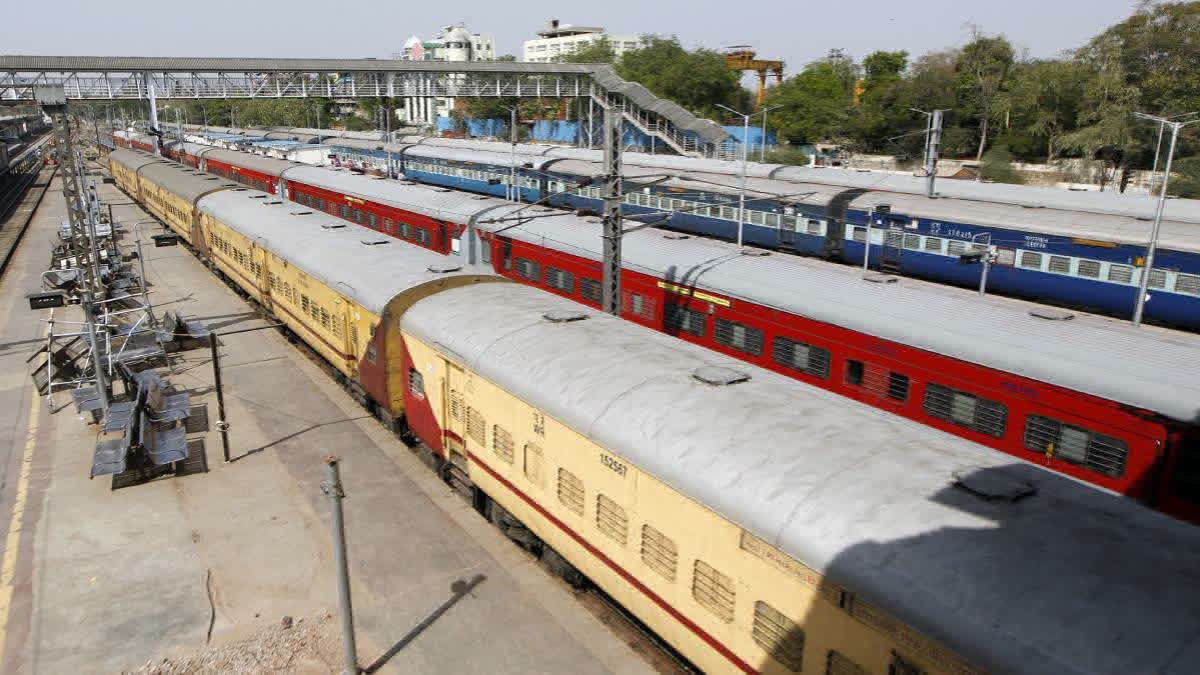The national Capital recorded 20.4mm of rainfall in a 24-hour period between 8:30am on Sunday and Monday, India Meteorological Department (IMD) data revealed, with overnight showers allowing Delhi to cross the normal average monthly rainfall mark of 19.1mm for January, in a single day.
The impact of this western disturbance is expected to weaken over northwest India from Monday onward, with no further rain expected for the remainder of the day, or in the coming days, officials said.
Safdarjung, which is representational of Delhi’s weather, recorded 20.4mm of rainfall till 8:30am on Monday, while Palam recorded 26.1mm, Lodhi road 23.7mm, Ridge 21.5 and Ayanagar received 28.2mm of rainfall during this period.
Prior to this, Delhi had only recorded rain on January 12, when a drizzle led to ‘trace’ rainfall being recorded at the Safdarjung observatory.
On January 12, Delhi had also snapped a 91-day streak of no rain.
Prior to that, Delhi had not received any rainfall since October 12, 2022, when 0.4mm rainfall took place.
Recent data shows Delhi recorded a similar dry spell in 2018, when no rain was recorded for 72 days between January 24 and April 7, 2018. Before that, Delhi had gone 82 days without rain in 2011, when no rain was recorded between September 17 and December 9, 2011.
“We saw strong thunderclouds forming over Delhi NCR towards late evening and while only drizzle and very light rain was recorded in the first spell during the morning, this second spell late on Sunday night was more intense, with moderate rainfall being recorded at most stations,” said a Met official, stating Delhi’s maximum will once again rise today, hovering around the 20-degree mark.
Delhi’s minimum is expected to fall by 2-3°C from Tuesday onward and is likely to hover around 7-8°C, the official said.
The capital recorded a minimum of 10.2°C this morning, 3.8°C higher than Sunday’s minimum. Meanwhile, Delhi’s maximum was recorded at 17.2°C on Sunday, a dip of 6.6 degrees Celsius as compared to Saturday’s maximum of 23.8°C.
IMD said it was the highest fall in maximum temperature between two consecutive days this winter season so far.
“Such a drastic fall in the maximum between two consecutive days was mainly on account of good cloud cover and strong winds,” a second IMD official said.
The rain also led to Delhi’s air quality improving slightly, dipping back down to the ‘poor’ category with a reading of AQI 285 at 9am. In comparison, Delhi’s AQI was recorded at 331 (very poor) according to the central pollution control board’s (CPCB) national bulletin at 4pm on Sunday.
Forecasts show further improvement in AQI is likely on Monday.
“Delhi’s air quality is likely to improve to the ‘moderate’ category on January 30. The AQI will then deteriorate to the ‘poor’ category on January 31 and while it will improve on February 1, it will still be in the ‘poor’ category,” said the Early Warning System (EWS) for Delhi, a forecasting model under the ministry of earth sciences.









